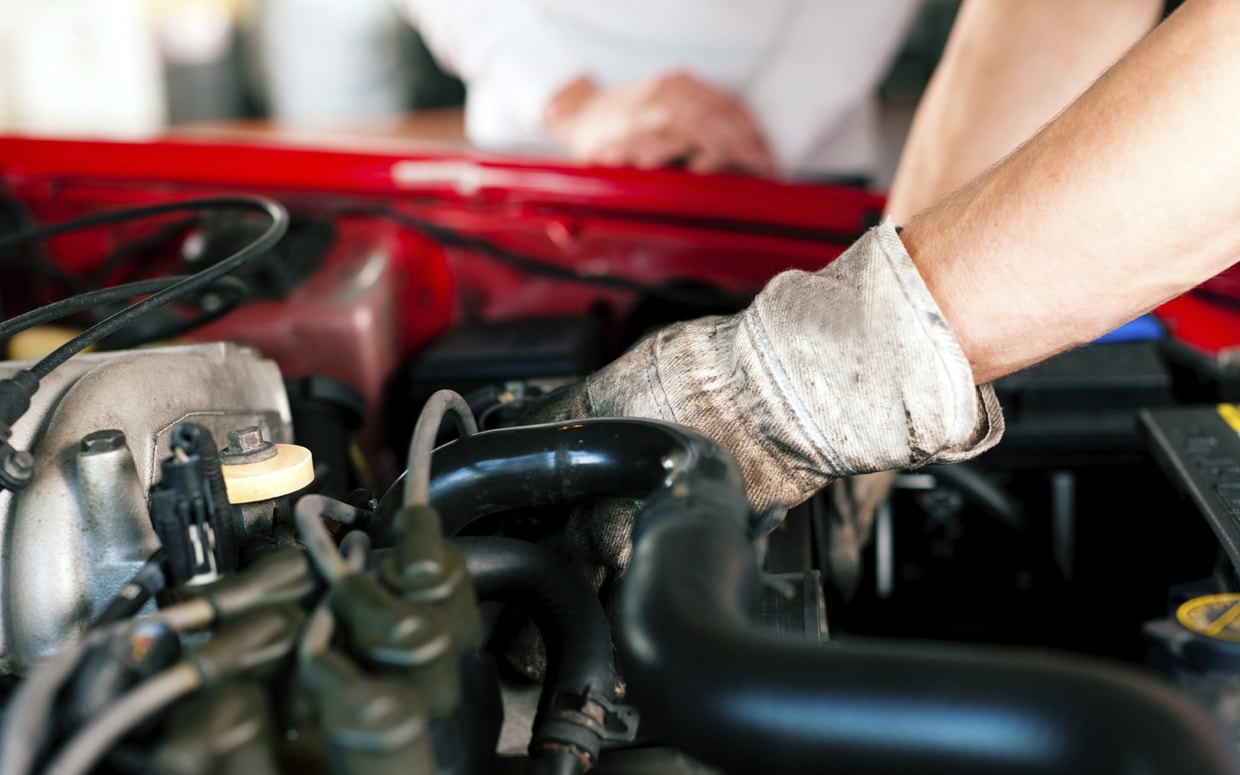
At I-70 Auto Service, we have a lot of experience answering questions about auto repair and car care. For this month’s blog, we thought we might share with you some of the most frequent questions we hear.
How often should I get an oil change/new tires/ new wiper blades/ etc?
There seems to be a lot of misinformation and conjecture about what maintenance is required and how often. The best place to check for this is your car’s manual: it will tell you exactly what mileage or time frame your car needs for service. Beyond that, there are a few rules of thumb you can go by to keep your car in the best shape. Here’s a neat little chart to answer your questions!
| Maintenance or Service | Time Frame or Mileage |
| Oil Change | 3,000 - 5,000 miles |
| New Tires | 25,000 - 50,000 miles |
| Wiper Blades | 6 to 9 months |
| Serpentine Belt | Replaced by 90,000 miles |
| Timing Belt | Replaced between 60K - 105K miles |
| Cabin Filter | Replaced once a year |
| Spark Plugs | Inspected at 30,000 miles |
| Plug Wires | Replaced by 70,000 miles |
| Motor Oil | Check the oil once a month |
| Rotating Tires | 6,000 miles |
| Transmission Fluid | Replaced 30,000 - 60,000 miles |
To keep my warranty, do I need to go to the dealership?
Nope! You can have your car serviced anywhere as long as you keep the receipts.
How do I know if my vehicle needs irregular maintenance?
There are many warning signs of car trouble. If any of your indicator lights are on, any of the gauges are indicating that you’re car is overheating, if you hear irregular noises like cranking, screeching, grinding, or rattling, or if you see or smell any gas or smoke, your vehicle needs to be serviced as soon as possible.
Does it matter where you fill up the tank?
Regarding the price of gasoline or the brand of fuel? No, any gas station is functionally the same for your engine. However, it’s better to fill up at a fuel station where there is a lot of traffic so that you don’t get gasoline that has been sitting too long. Also, it is bad for your fuel pump to drive until your low fuel lights come on. Fuel lubricants the pump and cools it, so always keep your tank at least ¼ full.
What should I do when my Check Engine light comes on?
Do not delay bringing your vehicle into I-70 Auto Service when your Check Engine light comes on. Your engine is trying to tell you something important. It could be something as simple as an open gas cap, or notifying you that something major is happening within your engine. Until you run diagnostic tests specific to your vehicle’s make, model, and year, it may be difficult to pinpoint the reason the Check Engine light has been illuminated. We have expert technicians who have the equipment and know-how to understand the nuances of a diagnostic test reading.
If you have any other questions for us, we’d be happy to talk! Call or come into I-70 Auto Service the next time you need maintenance or service for your vehicle. We’ll see you soon!